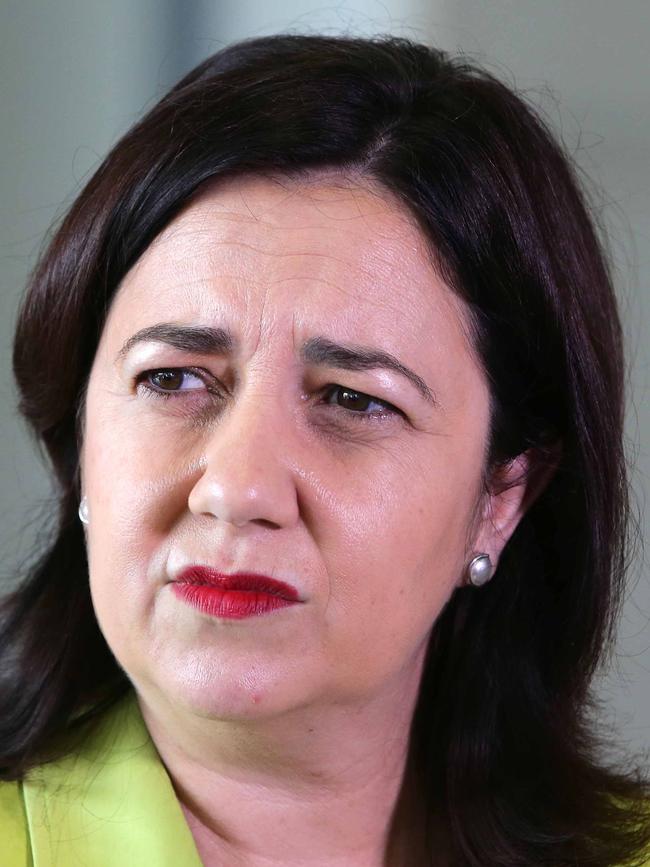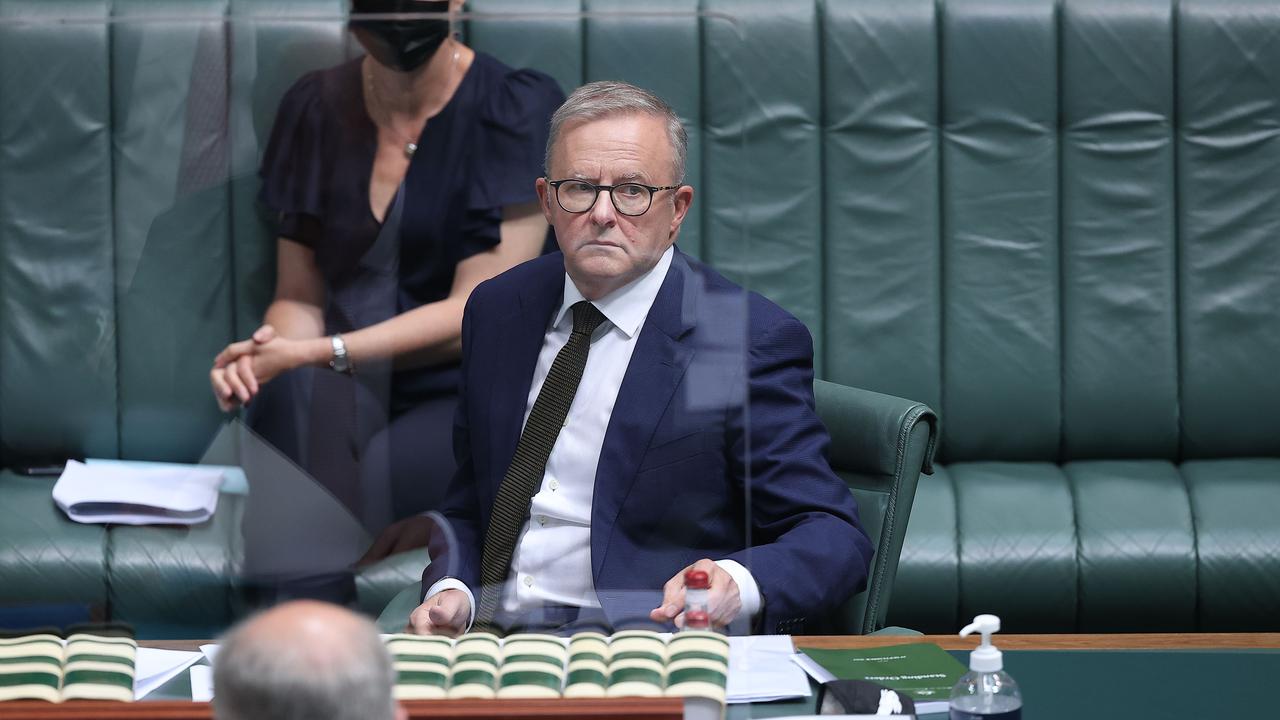The seats to watch in the 2019 federal election: Capricornia
The battle for Capricornia — one of the most marginal seats in the country — is going to be epic, with One Nation set to be a wildcard and a National minister at risk of losing her seat.
Federal Election
Don't miss out on the headlines from Federal Election. Followed categories will be added to My News.
Capricornia
Incumbent: Michelle Landry
Margin: 0.6 per cent
Candidates
LNP: Michelle Landry
Labor: Russell Robertson
One Nation: Wade Rothery, a miner campaigning strongly on backing coal industry. Rothery has a profile after running for One Nation at the state election in Rockhampton.
Katter’s Australia Party: George Birkbeck
United Australia Party: Lindsay Sturgeon
Local issues
A significant 11 per cent of workers in Capricornia are employed in the coal mining industry, so the Coalition and Labor’s stance on coal and the Adani mine will be key.
Cost of living, jobs, health and education will also be key local issues.
A BATTLE ROYALE
Capricornia will be a battle royale — with the outcome by no means certain.
It’s one of the most marginal electorates in the country so, on the face of it, incumbent Nationals MP Michelle Landry should lose her seat to Labor if there’s a general swing against the government.
But Pauline Hanson’s One Nation, Clive Palmer’s United Australia Party and Katter’s Australia Party will all run candidates, with One Nation in particular likely to get a large primary vote.
Mirani, in Capricornia, was the only state seat One Nation picked up at the 2017 Queensland election.
THE OTHER SEATS TO WATCH IN QUEENSLAND
DAWSON: LNP maverick hanging by a thread
DICKSON: Peter Dutton’s fight to the death
FLYNN: Wildcards could cause upset result
FORDE: Labor eyes snatching seat off LNP
HERBERT: Seat could turn on just 19 votes
PETRIE: Howarth hopes for a third miracle

Preference flows from Clive Palmer’s UAP candidate could boost Landry across the line after the LNP made an in principle preference deal to put UAP second on its how-to-vote cards.
Mr Palmer’s party will in turn preference the LNP second.
It comes as polling shows Mr Palmer’s costly advertising campaign is cutting through with voters and could nab a primary vote of 8 per cent on average.
Landry is also considered to be a strong local candidate with good recognition among punters, while her Labor challenger Russell Robertson, president of the CFMEU Goonyella Riverside Lodge, has a relatively low profile in the electorate’s key cities of Rockhampton and Yeppoon.
Landry was also put on the frontbench by Scott Morrison after he became prime minister, boosting her public profile and power within the Coalition even further.
In 2016, she beat Labor’s Leisa Neaton with 40.05 per cent of the primary vote and by 50.63 per cent after preference flows.

Griffith University political expert Paul Williams said the seat’s 0.6 per cent margin meant it would “almost certainly be lost to Labor”.
“Regional unemployment and infrastructure issues will feature heavily,” Dr Williams said.
“Expect to see several visits by Morrison and Shorten.”
“It will be interesting to see how PHON performs here — it should be ripe for populist exploitation but the populist right (PHON, KAP, AC, UAP) appears to have peaked and is on a slow decline.”
Veteran psephologist Malcolm Mackerras, a visiting fellow at the Australian Catholic University, also expected Labor to take Capricornia, along with other marginal Queensland seats such as Forde, Flynn, Petrie, Dickson and Dawson.
“I would not be surprised, however, if one or two of the LNP sitting members held on for local or personal reasons. I am not willing to name seats in that regard,” he said.
Election analyst Dr Kevin Bonham said the Nationals were “lucky” to hold the seat in 2016 but this time “just about any swing gets it”.
WHAT VOTERS WANT
A controversial plan to drought-proof western Queensland has emerged as a hot-button issue for Capricornia voters.
One Nation’s proposal for a Hybrid Bradfield Water Scheme to supply water to central Queensland and turn it into “an enormous food bowl, capable of feeding parts of the world” has attracted thousands of responses, shares and comments online for the party’s candidate Wade Rothery.
It shows voters are looking for creative solutions to Queensland’s drought and job creation.
An analysis by Storyful Australia of key candidate’s social media over the past month shows it was the post that attracted the biggest response online.
Another post about aid for drought-affected farmers by incumbent Michelle Landry, the LNP candidate, had the next biggest response.
Border security was also a key issue that gained a big response from voters.
The analysis shows Labor’s Russell Robertson wasn’t achieveing as much cut through online as Landry and Rothery.
WHAT WILL SWAY THE VOTE IN QUEENSLAND
Home Affairs minister Peter Dutton may be unsafe in Dickson, but the Liberals’ asylum-seeker policy push is likely to secure votes in the sunshine state as concerns for border protection and immigration heat up, political scientist Dr Paul Williams says.
Both of the major parties will need to lift their game if they want to win over Queensland’s ‘mini-states’ ahead of election day and job security, cost of living, economy and infrastructure are issues residents want to hear.
The state’s divided, yet strong views on border control, refugee policy and the Adani coal mine are sure to be vote securing in the north.
Dr Williams said the party leaders should be spending more time in regional Queensland to show they understand residents needs there are different to Brisbane.
Outside the city, asylum-seeker chatter gets louder, fuelled by the likes of Senator Fraser Anning and Bob Katter.
Dr Williams said Dickson was not a safe seat and Dutton would be in for a fight, but “if and when Dutton goes down he will only just lose.”
“The asylum seeker debate has reignited and it’s caught the attention of the electorates and Queensland is the most sensitive state to that,” he said, adding that refugee policy would be a good talking point for Scott Morrison in the state.


He noted Morrison had struggled to win fans in Brisbane, still bitter about losing Malcolm Turnbull as PM.
Dr Williams does not foresee Liberal success in Queensland this time round.
But some, like Warren Entsch in Leichhardt, will likely be spared the swing.
He also pointed out the state isn’t a huge fan of Bill Shorten either, despite state Labor’s success under Annastacia Palaszczuk.
He said the opposition could not rely on her to help them secure a federal win.
Green issues like protection of the Great Barrier Reef is important to Queensland and Shorten has gained support over his opposition of the Adani coal mine after Palaszczuk won the state election when she changed her tune, declaring Labor would not fund it.
“It clearly turned the election for her,” Dr Williams said.
“It’s very interesting to see how Bill Shorten was more anti-Adani than the Queensland government,” he said.
“Certainly the resistance to Adani has grown astronomically in the last two years and there’s a huge level of scepticism.”
Dr Williams expected Shorten to stick with anti-Adani in his fight as he works to firm up Greens preferences.
“I expect Morrison to lose and Shorten to form government based on Queensland and Victoria result alone,” he said.
— Additional reporting by Natasha Christian


